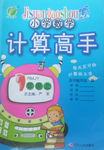题目内容
You have to explain ________ you were absent from school yesterday.
A. whatB. whichC. whereD. why
练习册系列答案
 计算高手系列答案
计算高手系列答案
相关题目
题目内容
You have to explain ________ you were absent from school yesterday.
A. whatB. whichC. whereD. why
 计算高手系列答案
计算高手系列答案